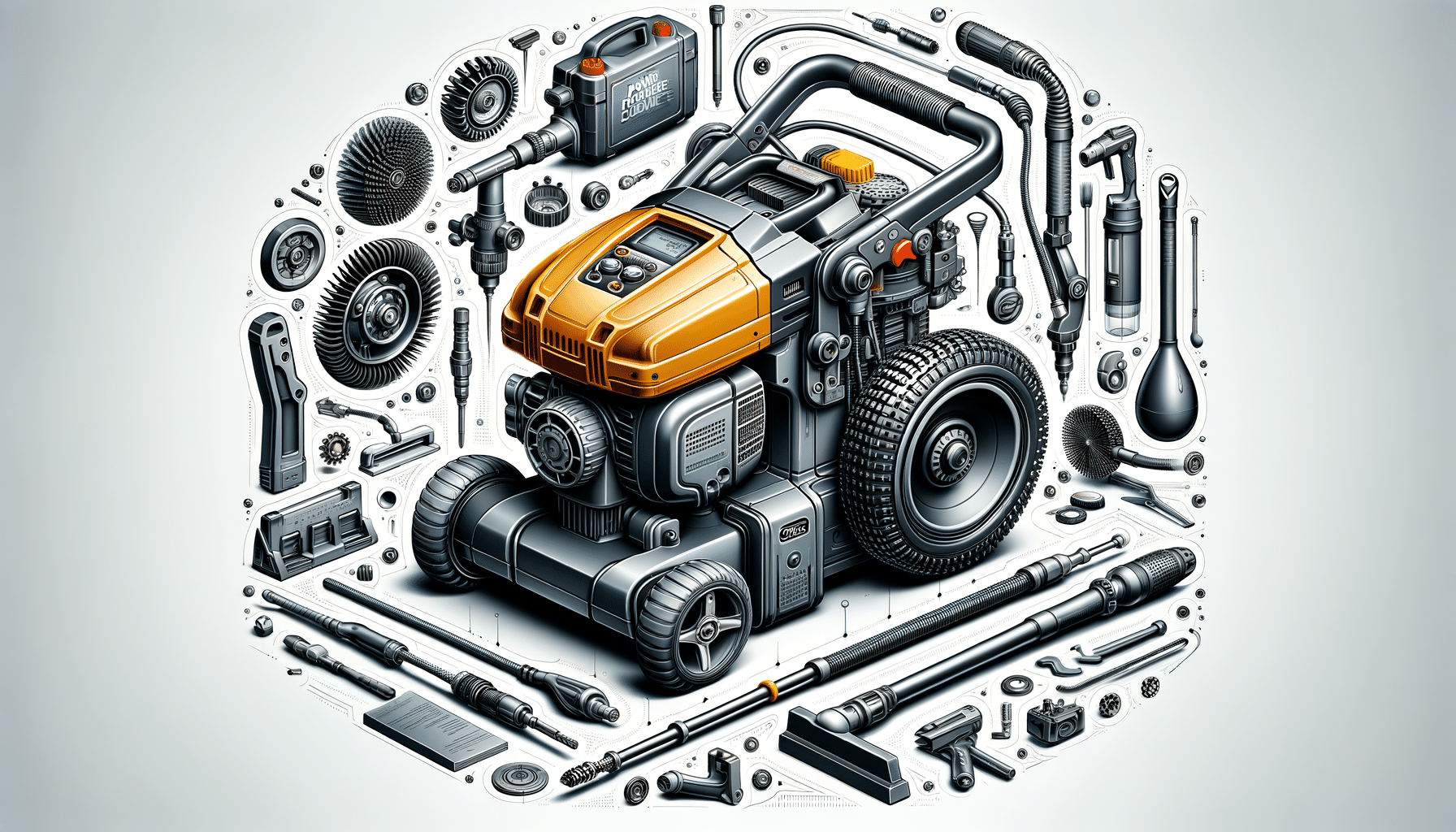Understanding the Power and Versatility of Pressure Cleaners
Explore the efficiency and applications of pressure cleaners in maintaining cleanliness and hygiene.

Introduction to Pressure Cleaners
Pressure cleaners, also known as pressure washers, are versatile tools that have revolutionized the way we approach cleaning tasks. These machines use high-pressure water jets to remove dirt, grime, and other unwanted substances from various surfaces. The importance of pressure cleaners cannot be understated, especially in environments where cleanliness and hygiene are paramount. Whether it’s for residential use or industrial applications, pressure cleaners offer an efficient solution for maintaining pristine conditions.
Pressure cleaners operate on a simple yet effective principle: water is pumped at high pressure through a nozzle, creating a powerful jet that can dislodge even the most stubborn dirt. The adaptability of pressure cleaners makes them suitable for a wide range of applications, from cleaning driveways and patios to washing vehicles and industrial equipment. Their ability to deliver exceptional cleaning results with minimal effort has made them a popular choice among homeowners and professionals alike.
Types of Pressure Cleaners
Pressure cleaners come in various types, each designed to cater to specific cleaning needs. Understanding the differences between these types can help users choose the right tool for their particular requirements.
There are primarily two categories of pressure cleaners based on their power source:
- Electric Pressure Cleaners: These are ideal for light to medium-duty cleaning tasks. They are generally quieter and more environmentally friendly than their gas counterparts. Electric pressure cleaners are perfect for residential use, such as cleaning cars, outdoor furniture, and small decks.
- Gas Pressure Cleaners: Known for their power and mobility, gas pressure cleaners are suitable for heavy-duty cleaning tasks. They are often used in industrial settings or large outdoor areas where electricity may not be readily available. Gas pressure cleaners offer greater pressure output, making them effective for removing tough stains and grime.
Additionally, pressure cleaners can be categorized by their pressure output:
- Light-Duty: Typically offering pressure up to 1,900 PSI (pounds per square inch), these are best for small tasks like washing cars and outdoor furniture.
- Medium-Duty: With pressure ranging from 2,000 to 2,800 PSI, these are suitable for cleaning larger areas such as driveways and patios.
- Heavy-Duty: Providing pressure above 2,800 PSI, these are designed for industrial applications and can tackle the toughest cleaning jobs.
Applications of Pressure Cleaners
The versatility of pressure cleaners is evident in their wide array of applications. From residential to commercial settings, these devices are invaluable for maintaining cleanliness and hygiene.
In residential settings, pressure cleaners are commonly used for:
- Cleaning driveways and sidewalks to remove dirt, moss, and algae.
- Washing vehicles, including cars, motorcycles, and boats, to maintain their appearance.
- Cleaning outdoor furniture and decks, enhancing the aesthetic appeal of outdoor spaces.
- Removing mildew and grime from exterior walls and fences.
In commercial and industrial environments, pressure cleaners are essential for:
- Maintaining cleanliness in factories and warehouses by removing grease and grime from floors and equipment.
- Cleaning construction sites, removing dirt and debris from machinery and surfaces.
- Ensuring hygiene in food processing plants by cleaning surfaces and equipment.
- Restoring public spaces, such as parks and monuments, to their original condition by removing graffiti and pollution stains.
The ability of pressure cleaners to adapt to different cleaning tasks makes them a valuable tool in various industries, contributing to efficiency and safety.
Benefits of Using Pressure Cleaners
Pressure cleaners offer numerous benefits that make them a preferred choice for both personal and professional cleaning tasks. Here are some of the key advantages:
- Efficiency: Pressure cleaners significantly reduce the time and effort required to clean large areas or stubborn stains. The high-pressure water jets can quickly dislodge dirt and grime, making cleaning tasks more manageable.
- Cost-Effectiveness: By reducing the need for harsh chemicals and manual scrubbing, pressure cleaners can lower cleaning costs over time. Additionally, they help in extending the lifespan of surfaces and equipment by maintaining them in good condition.
- Environmental Friendliness: Pressure cleaners often use less water compared to traditional cleaning methods. This conservation of water, combined with the reduced need for chemical cleaners, makes them an environmentally responsible choice.
- Versatility: With various attachments and settings, pressure cleaners can be customized to suit different cleaning tasks, from gentle washing to heavy-duty scrubbing.
- Improved Safety: By effectively removing slippery substances like oil and algae, pressure cleaners help prevent accidents and injuries, particularly in high-traffic areas.
These benefits highlight why pressure cleaners are a valuable investment for anyone looking to maintain cleanliness and hygiene efficiently.
Choosing the Right Pressure Cleaner
Selecting the right pressure cleaner involves considering several factors to ensure it meets your specific cleaning needs. Here are some tips to guide your decision:
- Assess Your Cleaning Needs: Determine the type and frequency of cleaning tasks you intend to perform. For light tasks, an electric pressure cleaner may suffice, while heavy-duty tasks might require a gas-powered model.
- Consider Pressure and Flow Rate: The pressure (measured in PSI) and water flow rate (measured in GPM – gallons per minute) are crucial in determining the effectiveness of a pressure cleaner. Higher values generally indicate more powerful cleaning capabilities.
- Evaluate Portability and Storage: Consider the size and weight of the pressure cleaner, especially if you need to move it frequently or have limited storage space.
- Check for Additional Features: Look for features such as adjustable nozzles, detergent tanks, and hose lengths that can enhance the versatility and convenience of the pressure cleaner.
- Read Reviews and Ratings: Research user reviews and ratings to gauge the reliability and performance of different models.
By carefully considering these factors, you can choose a pressure cleaner that not only meets your cleaning requirements but also provides long-term value.